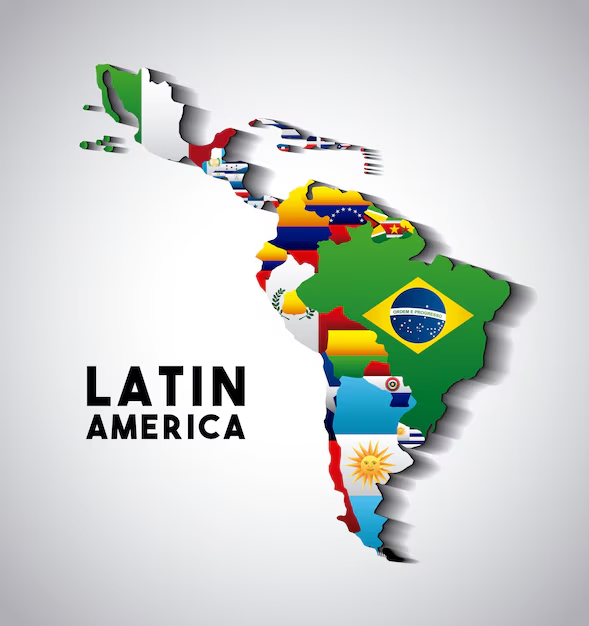Health Diplomacy in the Americas: A Collaborative Approach to Pandemic Preparedness and Public Health
The globalization of health risks necessitates international cooperation, particularly within geographically and economically interconnected regions like the Americas. This article analyzes the current state of health diplomacy in the Americas, focusing on its application to pandemic preparedness and public health crises. We will explore key concepts such as health security (the ability of a nation to protect its population from health threats), global health governance (the complex interplay of actors involved in shaping global health policies and actions), and health diplomacy itself (the use of diplomatic tools and strategies to improve global health). By understanding and applying these concepts, we can build a more resilient and equitable health system across both continents.
Foundational Principles of Health Diplomacy in the Americas
Health diplomacy, at its core, integrates public health concerns with foreign policy objectives. This interdisciplinary approach recognizes that health threats transcend national borders, demanding collaborative international responses. The application of the principles of reciprocity, mutual benefit, and shared responsibility are crucial for the success of any health diplomacy initiative. Drawing on realist and liberal theoretical frameworks in international relations, we can understand the importance of both national interests and the gains from cooperation, respectively, in fostering successful cross-border health partnerships. The COVID-19 pandemic starkly illustrated the necessity of this approach. The pandemic’s rapid global spread highlighted the inadequacy of solely national strategies and showcased the significant benefits of coordinated international action informed by evidence-based practices.
Strengthening Cross-Border Collaboration for Pandemic Preparedness
Effective pandemic preparedness requires robust surveillance systems, early warning mechanisms, and comprehensive joint response plans. This necessitates enhanced cross-border collaboration, informed by frameworks such as the World Health Organization's International Health Regulations (IHR). The application of these regulations includes the timely sharing of epidemiological data, coordinated border health measures, and the joint development of contingency plans. The success of such collaborations depends on building trust and open communication among nations, fostering a sense of collective security. Applying the concept of complex adaptive systems, we understand that pandemic response requires flexibility and adaptation, recognizing the dynamic and interconnected nature of health systems and their responses to outbreaks.
The Role of International Organizations and Regional Initiatives
International organizations like the WHO, PAHO, and CDC play a vital role in coordinating responses, providing technical assistance, and facilitating knowledge sharing. They act as crucial nodes in global health governance, offering platforms for collaboration, standard-setting, and resource mobilization. Regional initiatives, such as the North American Plan for Animal and Pandemic Influenza (NAPAPI), offer frameworks for collaborative planning, resource allocation, and joint exercises among specific nations. Analyzing these initiatives through the lens of international regimes, we can assess their effectiveness in coordinating actions, resolving conflicts, and establishing norms for pandemic preparedness. Examining successful initiatives through a case study approach would offer further insight into these dynamics.
Addressing Health Inequalities and Ensuring Equitable Access
Health diplomacy must prioritize addressing health inequalities, as vulnerable populations are disproportionately impacted by health crises. Applying principles of social justice and health equity, collaborative efforts must ensure that resources and services reach all populations regardless of socioeconomic status, geographic location, or other factors. The equitable distribution of vaccines, as observed during the COVID-19 pandemic, exemplifies this challenge. The application of frameworks such as the WHO’s health systems strengthening strategies can support efforts to address systematic inequalities in health outcomes. Analyzing resource allocation models through the lens of distributive justice and equity can inform policies aimed at achieving greater fairness in access to healthcare.
Investing in Resilient Health Systems and Fostering Innovation
Building resilient health systems is paramount to preparedness and response. This requires collaborative investments in infrastructure, human resources, and technological capacity. Analyzing this from a systems perspective, improvements in one area (e.g., surveillance) have cascading effects on others (e.g., early detection, rapid response). Collaborative research and innovation are equally vital for advancing disease understanding, treatment development, and strengthening preparedness. This application of the principles of scientific collaboration can advance technological innovations, providing powerful tools for enhanced surveillance, telemedicine, and other elements of public health systems.
Engaging Stakeholders and Harnessing Technology
Effective health diplomacy requires engaging civil society, the private sector, and other relevant actors. This approach leverages diverse expertise and resources, fostering a more holistic response. Applying the concept of multi-stakeholder governance allows for the integration of diverse perspectives, enhancing the effectiveness and legitimacy of health diplomacy initiatives. Technological advancements play a critical role in improving information sharing, surveillance, and telemedicine. This application of technology in health diplomacy can accelerate response times, improve resource allocation, and enhance cross-border communication significantly.
Conclusion and Recommendations
Health diplomacy in the Americas requires a collaborative, unified approach based on shared responsibility and trust. Strengthening cross-border collaboration, addressing health inequalities, and investing in resilient health systems are crucial steps. By leveraging international organizations, regional initiatives, technological advancements, and diverse stakeholder involvement, the Americas can build a more secure, equitable, and resilient public health system. Future research should focus on comparative case studies of successful and unsuccessful health diplomacy initiatives in the Americas, analyzing the factors that contribute to their success or failure. This will provide invaluable insights for policymakers and practitioners, informing the development of more effective strategies for pandemic preparedness and response, ultimately leading to improved health outcomes across the Americas. This work can significantly enhance pandemic preparedness by identifying effective strategies, fostering collaboration, and promoting resource allocation to ensure health equity and resilience within the region.
Reader Pool: What innovative strategies, beyond those discussed, could be employed to enhance cross-border cooperation and foster a more resilient public health system in the Americas?



No comments yet. Be the first to share your thoughts!